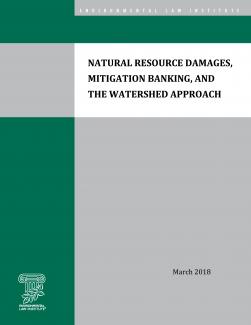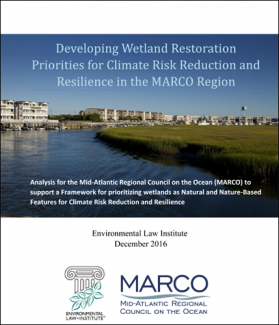New Report Outlines Effective and Innovative “In-Lieu Fee” Compensatory Mitigation Programs Nationwide
(Washington, DC) — Recent historic flooding across the United States and the ever-increasing threat of powerful hurricanes have highlighted the importance of healthy wetlands and the consequences of the loss of these critical habitats. These vital ecosystems provide a number of economic and environmental benefits, including improved water quality, flood control, wildlife and fisheries habitat, and recreational opportunities. The Clean Water Act (CWA) regulates impacts to wetlands and other aquatic resources.


